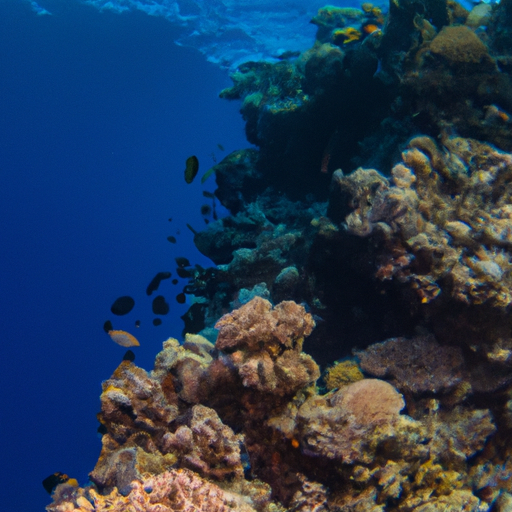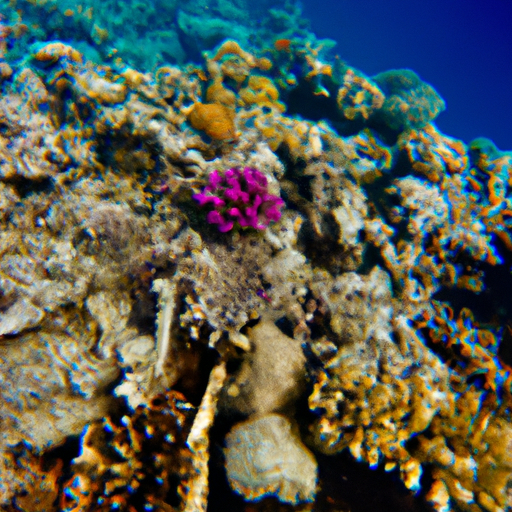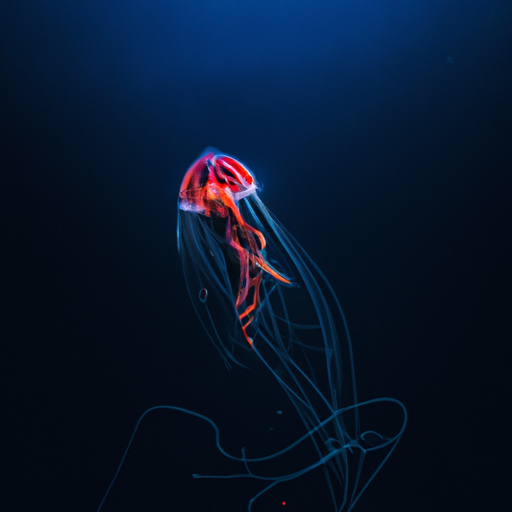
The Decline of Marine Life: The Urgent Need for Conservation
Protecting our oceans is crucial for the survival of marine life. The decline of marine life is a global issue, and urgent steps need to be taken to conserve and protect our oceans. Conservation efforts play a significant role in maintaining the delicate balance of ocean ecosystems and ensuring the sustainability of marine life.
One of the primary reasons why conservation is essential for marine life is the alarming rate at which species are disappearing. Overfishing, habitat destruction, pollution, and climate change are some of the major factors contributing to this decline. Without effective conservation measures, many species could face extinction, disrupting the entire ocean food chain.
Conservation of marine life also helps to preserve the biodiversity of our oceans. Each species, no matter how small or seemingly insignificant, plays a crucial role in the ecosystem. From the microscopic phytoplankton that produce half of the world’s oxygen to the majestic whales that keep krill populations in check, every organism contributes to the overall health and functioning of the ocean.
Furthermore, healthy ocean ecosystems are essential for human well-being. Oceans provide valuable resources such as food, medicine, and livelihoods for millions of people worldwide. Conserving marine life helps to ensure a sustainable supply of these resources for future generations. Additionally, healthy oceans contribute to the regulation of climate, absorbing vast amounts of carbon dioxide and mitigating the impacts of climate change.
Conservation efforts for marine life involve various strategies and initiatives. One essential approach is the establishment of marine protected areas (MPAs), which help to safeguard critical habitats and vulnerable species. MPAs provide safe havens for marine life to thrive, allowing populations to recover and ensuring the preservation of biodiversity. Strict regulations on fishing practices, waste management, and pollution control are also crucial for effective conservation.
The urgent need for conservation of marine life requires both global cooperation and individual action. Governments, NGOs, and international organizations must work together to enact and enforce policies that protect our oceans. It is also essential for individuals to be conscious of their actions and make sustainable choices in their daily lives, such as reducing plastic consumption and supporting sustainable seafood practices.
In conclusion, the decline of marine life necessitates immediate and concerted conservation efforts. Protecting our oceans is not only crucial for the survival of marine species but also for the well-being of humanity and the health of our planet. Through collective action, we can ensure that future generations can enjoy the beauty and abundance of marine life.
The Impact of Human Activities on Ocean Biodiversity
Protecting our Oceans: The Importance of Conservation for Marine Life
The world’s oceans are home to a vast array of marine life, from stunning coral reefs to majestic whales and everything in between. However, the impact of human activities on ocean biodiversity has been increasing at an alarming rate. It is crucial that we take immediate action to protect and conserve our oceans for the sake of marine life and the overall health of our planet.
One of the key reasons why conservation is essential for marine life is the incredible diversity of species that inhabit the oceans. Our oceans are teeming with millions of different species, many of which are still undiscovered. These species play vital roles in maintaining the balance of marine ecosystems and contribute to important ecological processes, such as carbon sequestration and nutrient cycling.
Unfortunately, human activities such as overfishing, pollution, and climate change pose significant threats to marine life. Overfishing, for instance, has led to the depletion of fish populations, causing imbalances in marine food webs and compromising the livelihoods of communities that rely on fishing for their sustenance. Pollution from sources like industrial waste and plastic has devastating consequences for marine life, with countless marine animals becoming entangled in or ingesting plastic, leading to injury and death.
Climate change is another major concern for marine life. Rising ocean temperatures and ocean acidification, primarily caused by the burning of fossil fuels, have severe impacts on coral reefs, which provide habitat for numerous species. Bleaching events, where corals expel their symbiotic algae and turn white, have become more frequent and widespread, causing massive die-offs and leading to a loss of biodiversity in these fragile ecosystems.
Conservation efforts are fundamental in mitigating these threats and protecting marine life. Establishing marine protected areas (MPAs) can help safeguard habitats and enable fish populations to recover. These areas serve as sanctuaries where marine life can thrive, undisturbed by human activities. Additionally, sustainable fishing practices and regulations can help ensure the long-term viability of fish stocks while minimizing the impacts on other marine species.
Educating and raising awareness among individuals and communities about the importance of ocean conservation is also paramount. Small changes in our daily lives, such as reducing plastic usage and properly disposing of waste, can make a significant difference in protecting our oceans and the creatures that call them home.
In conclusion, the conservation of our oceans is of utmost importance for marine life. By taking action to reduce overfishing, pollution, and climate change, we can preserve the incredible biodiversity that exists in our oceans and ensure a sustainable future for both marine life and ourselves. Let us come together to protect and safeguard our oceans for generations to come.
Protecting Coral Reefs: Preserving the Underwater Ecosystems
Protecting our oceans is crucial for the preservation of marine life and the overall well-being of our planet. Marine ecosystems, such as coral reefs, play a crucial role in supporting biodiversity and providing a habitat for countless species. Coral reefs, in particular, are often referred to as the “rainforests of the sea” due to their incredible diversity and importance to marine life.
Conservation efforts for marine life have become increasingly important as our oceans face many threats. Pollution, overfishing, climate change, and habitat destruction are all factors that put immense pressure on marine ecosystems. Coral reefs, in particular, are highly vulnerable to these threats.
One of the main issues affecting coral reefs is the rise in ocean temperatures caused by climate change. When water temperatures become too high, corals undergo a process called bleaching, where they expel the symbiotic algae that provides them with nutrients and their vibrant colors. As a result, corals become pale, weak, and more susceptible to diseases. If bleaching events continue to occur at an alarming rate, entire coral reef ecosystems could collapse, causing devastating consequences for marine life.
Another significant threat to marine life is pollution, specifically from plastics. Plastic waste, such as bottles, bags, and microplastics, finds its way into the oceans, causing harm to marine species through ingestion or entanglement. The accumulation of plastic debris also leads to the degradation of coral reefs and other marine habitats. Protecting our oceans from plastic pollution requires both individual efforts, such as reducing plastic consumption and proper waste disposal, as well as larger-scale initiatives to reduce the production of single-use plastics and improve waste management systems.
Overfishing is another concern that needs to be addressed to protect marine life. Unsustainable fishing practices, such as using destructive fishing gear or harvesting fish populations beyond their reproductive capacity, can have severe consequences for marine ecosystems. When fish populations decline, it disrupts the delicate balance of the food chain, affecting not only the fish themselves but also other species that depend on them.
Conservation efforts for marine life need to focus on creating marine protected areas (MPAs) and implementing sustainable fishing practices. MPAs are designated areas where human activities are restricted or completely banned, allowing marine ecosystems to recover and thrive. These areas serve as vital sanctuaries for marine life, enabling the regeneration of fish populations and the restoration of damaged habitats.
In conclusion, protecting our oceans and preserving marine life is essential for maintaining the health and balance of our planet. Conservation efforts must address threats such as climate change, pollution, and overfishing to ensure the long-term survival of marine ecosystems. By implementing sustainable practices, supporting MPAs, and raising awareness about the importance of marine conservation, we can make a positive impact and safeguard the future of our oceans.
Promoting Sustainable Fishing: Balancing Human Needs with Marine Conservation
Protecting our Oceans: The Importance of Conservation for Marine Life
The world’s oceans are home to a vast array of marine life, from majestic whales and dolphins to colorful corals and tiny plankton. This underwater ecosystem is not only a source of fascination and beauty; it also plays a crucial role in maintaining the health of our planet. However, the well-being of marine life is increasingly threatened by human activities, making conservation efforts more important than ever.
Marine conservation is the practice of protecting and preserving the delicate balance of life in our oceans. It involves adopting sustainable fishing practices, creating marine protected areas, reducing pollution, and combating the effects of climate change. These efforts are essential to ensure the survival of marine species and maintain the overall health of our oceans.
One of the primary reasons why marine conservation is crucial is for biodiversity preservation. The oceans are home to an incredible variety of species, many of which are still undiscovered. These species provide ecological services, such as nutrient cycling and carbon sequestration, which have a direct impact on the health of our planet. By conserving marine life, we can protect this biodiversity and maintain the balance of ecosystems.
In addition to biodiversity, marine conservation is vital for the sustainability of fish stocks. Overfishing has become a significant issue in many parts of the world, with some fish populations on the brink of collapse. By implementing sustainable fishing practices, such as setting catch limits and using selective fishing gear, we can ensure that fish stocks are replenished and future generations can continue to rely on them as a source of food and livelihood.
Protecting marine life also has wider environmental and economic benefits. Healthy oceans act as carbon sinks, absorbing significant amounts of carbon dioxide from the atmosphere. By safeguarding marine ecosystems, we can help mitigate climate change and its detrimental effects on both land and sea. Furthermore, coastal communities heavily rely on healthy oceans for tourism, fishing, and other economic activities. Marine conservation, therefore, safeguards not only the environment but also local economies and livelihoods.
The importance of marine conservation cannot be overstated. Through collective efforts, we can take steps to reduce our impact on the oceans and ensure the long-term survival of marine life. By promoting sustainable fishing practices, establishing marine protected areas, and reducing pollution, we can contribute to the preservation of our planet’s most valuable and diverse ecosystems. It is our responsibility to protect our oceans for future generations, and the time to act is now.
[Photo Description]
Protecting our oceans is crucial for the survival of marine life. With the world’s seas facing numerous threats, conservation efforts have never been more important. The delicate balance of marine ecosystems is essential for not only the creatures that call the oceans home but also for the entire planet.
One of the key aspects of ocean conservation is the preservation of biodiversity. The oceans are home to a staggering variety of species, many of which are still being discovered. From tiny plankton to majestic whales, each organism plays a vital role in the marine ecosystem. By protecting these species and their habitats, we ensure the stability and resilience of the entire ecosystem.
Human activities, such as overfishing, pollution, and habitat destruction, pose significant threats to marine life. Overfishing not only depletes fish populations but also disrupts the delicate food chain, impacting other species that depend on these fish for survival. Pollution, including plastic waste and chemical run-off, not only harms marine life directly but also contributes to the degradation of coral reefs and the destruction of habitats. Additionally, coastal development and the destruction of wetlands further reduce the available habitats for marine species.
Conservation efforts aim to address these issues and protect marine ecosystems. Initiatives such as marine protected areas (MPAs) help safeguard crucial habitats and provide a refuge for endangered species. These areas not only contribute to the recovery of marine life but also support sustainable fishing practices, ensuring the long-term viability of fish populations. Additionally, raising awareness about the importance of ocean conservation among the general public and policymakers is crucial to drive necessary changes and promote more sustainable practices.
Protecting our oceans is not only about preserving marine life but also about safeguarding the planet as a whole. Oceans play a crucial role in regulating our climate, absorbing carbon dioxide, and producing oxygen. Furthermore, they provide a source of food and livelihoods for millions of people around the world. By conserving our oceans, we ensure a sustainable future for both marine life and humanity.
In conclusion, conservation efforts for marine life are of utmost importance to protect the delicate balance of our oceans. Preserving biodiversity, addressing human-induced threats, and promoting sustainable practices are key to ensuring the survival and well-being of marine species and ecosystems. By valuing and protecting our oceans, we take a crucial step towards creating a more sustainable future for our planet and all its inhabitants.


